#wilhelm duke in bavaria
Explore tagged Tumblr posts
Note
Who from the Wittelsbach siblings do you think had the happiest marriage and who do you think had the unhappiest marriage, in your opinion?
I think Karl Theodor & Maria Josepha had the most happy marriage, while the least happy marriage was a tie between Maria Sophie & Francesco and Mathilde Ludovika & Louis.
Hello! Sorry for the wait. Although I can’t help but find the seventeen years age gap between Karl Theodor and Marie José icky, it does seem they were happy together. Out of all the siblings they seem to have had the most functional marriage for sure. Karl Theodor also had a good marriage with his first wife Sophie, though it was sadly a short one.
Helene and Louis both married for love to people beneath their status, though I can’t really say for sure how happy their marriages actually were. In Helene’s case simply because I haven’t found any sources that describe how her relationship with her husband Maximilian was, but given how deeply affected she was by his untimely death, I think it’s safe to assume it was a happy union.
In Louis’ case, we know that Elisabeth once told her lady-in-waiting that “It is a good thing that Henriette is his wife, for anybody else would long since have left him, and he is happy with her.” Valerie also wrote in her diary in 1884 that “Good Aunt Henriette is here and will stay until Saturday... When the attacking Uncle Louis isn’t around, Aunt is much more pleasant.” It seems that as he grew older Louis developed an erratic personality and was fit to burst of anger out of nowhere, which likely troubled his relationship with his family. I always trash Marie Larisch’s memoirs for being so unreliable, but I actually believe there is truth is this anecdote she recalls of going with her parents to the Opera in Vienna as a teenager:
during the ent’racte I whispered to papa that I should like something to eat. But I was not prepared for the wrath which followed this simple request. “Another word and I will box your ears,” he hissed. “How dare you be hungry at the Opera! And if you are, listen to the music and feed on its beauty.” I tried to follow his advice, but I felt really sinking, and although I adored the Opera, I was very glad to get back to Schönbrunn and supper.
I only can hope that these lapses in his personality didn’t occure too often.
My unpopular opinion is that I don’t think Marie and Francesco’s marriage was as miserable as it’s often assumed. While she did have a bad start with her husband, it seems that from 1868 (the year of their “reapprochment” aka when they started to sleep together regularly) onwards they had a good relationship. I just haven’t come across anything that really supports they didn’t get along in their old age. The only thing I’ve seen used as evidence of them being in “bad terms” is that Marie traveled alone often but so did Elisabeth, and no one argues that she and FJ hated each other because of that. Also Francesco II’s health was bad since the 1880s, so it’s not that weird that he couldn’t accompany his wife in her trips anymore (since he did travel with her to England in the 1870s).
Mathilde and Luigi were the most disfunctional marriage hands down, they had problems from the very beginning and their relationship only got worse as the years went by. They had been informaly engaged since Marie’s own marriage, and ok at the time it seem like a good idea to marry both sisters to the first and second in line of succession princes of a Catholic kingdom. But frankly they should’ve call it off after the Bourbons were deposed because the marriage promised no economic security to Mathilde, and even less personal happiness. Luigi got publicly drunk constantly, was unfaithful, and completely broke. On her older age Mathilde lived separated from her husband and after his death she had to depend on Elisabeth for support.
That being said, my answer to whom I think had the worst marriage is always going to be Sophie and Ferdinand d’Alençon, mainly because he had her locked up in a mental institution for months after she tried to divorce him. Which to me tops literally any other bad thing that anyone else on this post ever did to their spouse. But at the time everyone saw it as the right thing to do to “save” Sophie from herself, which is just sad.
Thank you for your question!
#fun fact it seems marie's husband francesco was the one who introduced karl theodor and marie josé?#i recall reading they met at his place#karl theodor duke in bavaria#maria josé of braganza duchess in bavaria#duke ludwig wilhelm in bavaria#henriette mendel baroness wallersee#helene in bavaria hereditary princess of thurn und taxis#maximilia hereditary prince of thurn und taxis#queen marie sophie of the two sicilies#francesco ii of the two sicilies#mathilde in bavaria countess of trani#luigi of bourbon-two sicilies count of trani#sophie in bavaria duchesse d'aleçon#ferdinand d'orleans duke of alençon#asks
14 notes
·
View notes
Text

German, Reliquary altar of Duke Wilhelm V of Bavaria, 1600 x
315 notes
·
View notes
Text
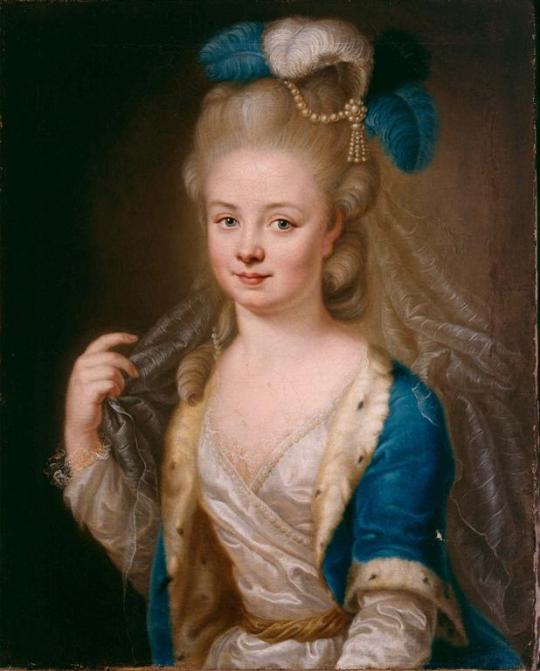
Countess Palatine Maria Anna of Zweibrücken-Birkenfeld-Bischweiler (18 July 1753 – 4 February 1824) was Countess Palatine of Birkenfeld-Gelnhausen and Duchess in Bavaria, through her marriage to Duke Wilhelm in Bavaria. Maria Anna was a great-grandmother of Empress Elisabeth of Austria through her son Duke Pius August in Bavaria.
#Maria Anna of Zweibrücken-Birkenfeld#House Wittelsbach#xviii century#xix century#people#portrait#paintings#art#arte
56 notes
·
View notes
Text
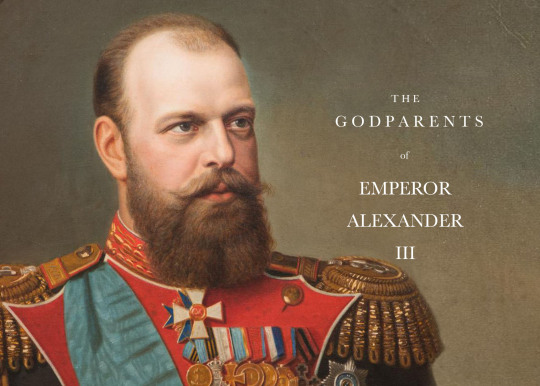

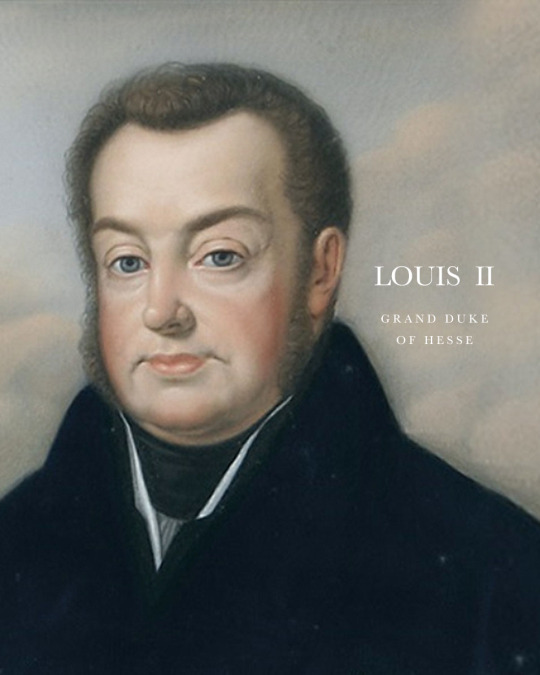

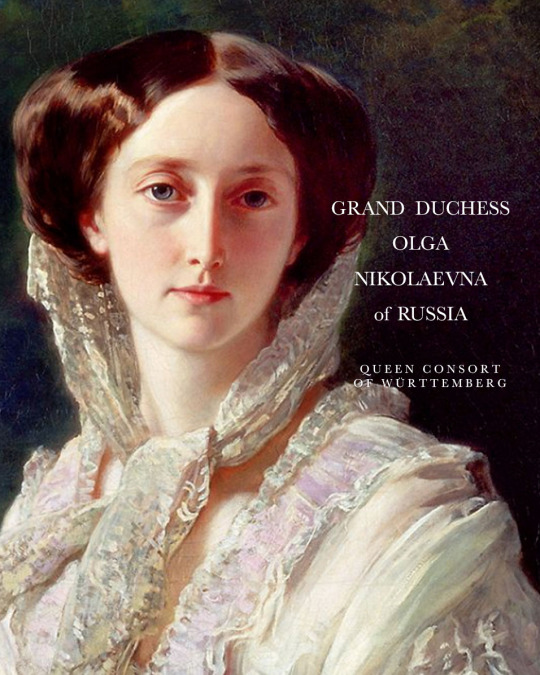
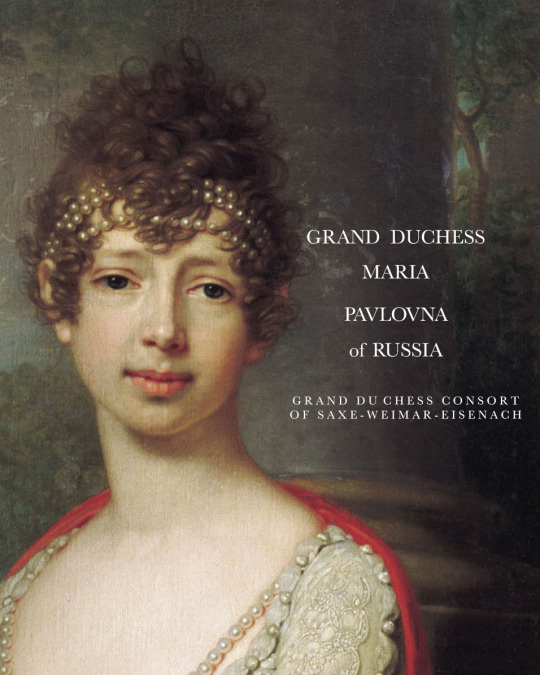

GODPARENTS OF EMPEROR ALEXANDER III
Emperor Alexander III (then Grand Duke) was born as the second son of Emperor Alexander II (then Tsesarevich) on 10 March 1845, during the reign of his grandfather Emperor Nicholas I. He was christened a week later at 10 am in the Winter Palace Church, St. Petersburg, by the Confessor of Their Imperial Highnesses. He had six listed godparents:
NICHOLAS I, EMPEROR OF RUSSIA - his paternal grandfather was one of his godparents present at his christening. Mainly remembered in history as a reactionary whose controversial reign was marked by geographical expansion, centralisation of administrative policies and repression of dissent. He died in 1855, when the Alexander was only 9 years-old, just a week shy from his 10th birthday.
LOUIS II, GRAND DUKE OF HESSE AND BY RHINE - his maternal grandfather was another of his godparents, but was absent at the christening. The hessian grand duke, like his paternal grandfather, was also considered a reactionary leader, he was in conflict with parliament almost his entire reign. The German revolution in 1848-49 proved his inability to govern. On March 5, 1848 he named his son Louis III as co-regent, and a year later he died.
GRAND DUCHESS ELENA PAVLOVNA OF RUSSIA - his great-aunt, the wife of Grand Duke Michael Pavlovich, stood as one of his godparents. Born as Princess Charlotte of Württemberg, she became a close friend of Alexander's mother the Empress Maria Alexandrovna, and was known as an intellectual. She was also considered the most exceptional woman in the imperial family since Catherine the Great.
GRAND DUCHESS OLGA NIKOLAEVNA OF RUSSIA, QUEEN CONSORT OF WÜRTTEMBERG - his aunt was one of his godparents present at the christening. She was the younger sister of his father. Attractive, cultured and intelligent, she was considered to be one of the most eligible princesses in Europe. Just three years after her nephew was born, in 1846, she married Crown Prince Karl of Württemberg. Alexander's older brother the heir apparent Nicholas died just two months before their aunt Queen consort of Württemberg. With his death, he became the next heir apparent, the 'Tsesarevich'.
GRAND DUCHESS MARIA PAVLOVNA OF RUSSIA, GRAND DUCHESS CONSORT OF SAXE-WEIMAR-EISENACH - his great-aunt was another of his godparents. One of the daughters of Emperor Paul I, the grand duchess married a German prince Karl Friedrich, Grand Duke of Saxe-Weimar-Eisenach in 1804. She was an intellect, interested in both arts and sciences. German poet and novelist Johann Wolfgang von Goethe hailed her as one of the worthiest women of his time. She was the great-grandmother of Wilhelm II, German Emperor and Queen Victoria of Sweden.
PRINCESS MATHILDE CAROLINE OF BAVARIA, GRAND DUCHESS OF HESSE AND BY RHINE - his aunt, the wife of his uncle Louis III, Grand Duke of Hesse and by Rhine, was listed as one of the future emperor's godparents. She was the eldest daughter of King Ludwig I of Bavaria. Her marriage to Louis III was childless. She died of cancer in 1862 at the age of 48.
Source
36 notes
·
View notes
Text
"The Waste Land" by T. S. Eliot, page 4
Every week on this site, I will be publishing a new page from my ongoing comics adaptation of “The Burial of the Dead,” the first section of T. S. Eliot’s epochal poem “The Waste Land.” (The main references in this section are to the reminiscences of Countess Marie Larisch, illegitimate daughter of Duke Ludwig Wilhelm in Bavaria. Her cousin is Crown Prince Rudolf of Austria, who later took his…

View On WordPress
#crown prince rudolf#marie larisch#mayerling incident#poetry#poetry comics#sledding#T. S. Eliot#the burial of the dead#the waste land
7 notes
·
View notes
Text
Bavarn
Bavarn (Bóarn /ˈpoː.ɑːn/) [~Bavaria] is a centrally-located German polity of Europe. Among others, it borders Bohemia, Burgundy, Friule, Saxony, and Willemy.
History
During the Second Tetrarchy, the Kingdom of Bavarn was one of the two main players in the German Empire; the Empire was for some time ruled jointly by the Houghbrocken and Andex dynasties of Saxony and Bavarn respectively.
Thirteenth-century Bavarn was the epicentre of the Pauline Denunciations and the German Secession, leading to the establishment of the Augsburg See. The concomitant strife saw each vassal in Bavarn declare either for Rome or for Augsburg, in a powderkeg patchwork of allegiances that would collapse the Empire entirely. Bavarn itself would never regain as much Adriatic coast as it had enjoyed just prior to these events.
In the fifteenth century, Bavarn was embroiled in an extended series of conflicts with Burgundy. By this time it had also become a technological centre, with workshops developing entirely new glassmaking techniques.
Following the Blue Trans-Willem War of the late nineteenth century, Bavarn gained significant territory from the Kingdom of Burgundy, which subsequently dissolved. As result, then-king Frederick created the Duchy of Far Suebia, ruled from Burgundy's former capital Geneva.
In the eighteenth century, famine and a shortage of grain led to popular unrest that threatened to destabilise the state; the examples of Venise and Crovatia to the south demonstrated how badly things could go for the current regime.
The Second German War embroiled Bavarn, allied with (among others) Borland and the Northern Concert; a particularly significant event during this war was the disastrously mismanaged Battle of Hulm in 1821.
People
Monarchs
Conrad II (fl. 1120), who ruled from Regensburg
Adalmar (fl. c13), who was succeeded by Empress Katharina of Germany, the last ruler of a united Germany for over five hundred years
Frederick (fl. c17), who created the Duchy of Far Suebia
Nobility
Elias Villingen, second Duke of Far Suebia
Others
Wilhelm Bruez (fl. 1225), mayor of Augsburg
Paul von Burchardt (fl. 1225), writer of the Pauline Denunciations and instigator of the German Secession
Marian Siegert ~ Miller (1725-1756), illegitimate daughter of Elias Villingen
4 notes
·
View notes
Text
Reinheitsgebot: A Celebration of Brewing Purity
On April 23, 1516, Duke Wilhelm IV of Bavaria enacted a decree that would shape the course of brewing history. This historic legislation, known as the Reinheitsgebot or Bavarian Beer Purity Law, established strict standards for brewing, setting forth principles of purity, quality, and craftsmanship that have endured for centuries. Let us delve into its origins, impact, and enduring legacy in the…

View On WordPress
0 notes
Text










208 years ago today was born HM Vasilias Othon I of Greece Prince of Bavaria, (June 1, 1815 - July 26, 1867) was a Bavarian prince of the House of Wittelsbach, first king of the Greek state. He was the only monarch of Greece who brought the title of King of Greece, since the next ones, of the House of Glücksburg, had the title of King of the Greeks.
Othon Frederick Louis was born on June 1, 1815 at the Mirabell Palace in Salzburg. He was the second son of the Philhellenic King of Bavaria Ludwig I and Theresia, daughter of Frederick, Duke of Saxe-Altenburg. He was educated as a prince, destined for a secondary position within the state. In fact, his father wanted him to follow an ecclesiastical career and assigned his studies to the fanatical Catholic priest, Eitel, who later became the Bishop of Eichstedt
Because Othon was a minor, a Regency committee was formed. This organ consisted of
* Count Joseph Ludwig Armansberg - President
* Georg Ludwig von Maurer
* Major General Carl Wilhelm von Heideck
Some historians say that Othon loved Greece more than anything else, but not the Greeks. He died on July 26, 1867 in Bamberg. He himself wanted to be buried in the traditional clothing of Greece, the foustanella. He is buried next to Amalia, in the crypt of the family tombs of the Bavarian dynasty, in the Church of the Theatines, in the center of Munich.
Πριν 208 χρόνια σαν σήμερα γεννήθηκε Η ΑΜ Βασιλιας Όθων Α΄ της Ελλάδας Πρίγκιπας της Βαυαρίας ,( 1 Ιουνίου 1815 - 26 Ιουλίου 1867) ήταν Βαυαρός πρίγκιπας του Οίκου των Βίττελσμπαχ, πρώτος βασιλιάς του ελληνικού κράτους.Ήταν ο μοναδικός μονάρχης της Ελλάδος που έφερε τον τίτλο Βασιλεύς της Ελλάδος, δεδομένου ότι οι επόμενοι, του Οίκου των Γκλύξμπουργκ, είχαν τον τίτλο Βασιλεύς των Ελλήνων.
Ο Όθων Φρειδερίκος Λουδοβίκος γεννήθηκε την 1η Ιουνίου 1815 στο Παλάτι Μιραμπέλ του Σάλτσμπουργκ. Ήταν ο δευτερότοκος γιος του φιλέλληνα βασιλιά της Βαυαρίας Λουδοβίκου Α΄ και της Θηρεσίας, κόρης του Φρειδερίκου, Δούκα της Σαξονίας-Αλτεμβούργου. Έλαβε εκπαίδευση πρίγκηπα, που προοριζόταν για δευτερεύουσα θέση μέσα στο κράτος. Μάλιστα, ο πατέρας του ήθελε να ακολουθήσει εκκλησιαστική σταδιοδρομία και ανέθεσε τις σπουδές του στο φανατικό καθολικό ιερέα, Αίτελ, που αργότερα έγινε Επίσκοπος του Άιχστετ
Επειδή ο Όθων ήταν ανήλικος, σχηματίστηκε επιτροπή Αντιβασιλείας. Το όργανο αυτό αποτελούσαν οι
* Κόμης Γιόζεφ Λούντβιγκ Άρμανσπεργκ - Πρόεδρος
* Γκέοργκ Λούντβιγκ φον Μάουρερ
* Υποστράτηγος Καρλ Βίλχελμ φον Χάιντεκ
Κάποιοι ιστορικοί αναφέρουν ότι ο Όθων αγάπησε την Ελλάδα όσο τίποτε άλλο, όχι όμως και τους Έλληνες. Απεβίωσε στις 26 Ιουλίου 1867 στη Βαμβέργη. Ο ίδιος θέλησε να θαφτεί με την παραδοσιακή ενδυμασία της Ελλάδας, τη φουστανέλα. Είναι θαμμένος δίπλα στην Αμαλία, στην κρύπτη των οικογενειακών τάφων της βαυαρικής δυναστείας, στην Εκκλησία των Θεατινών, στο κέντρο του Μονάχου.
#kingconstantine#danishroyalfamily#crownprincepavlos#queenannemarie#greek royal family#house of romanov#greekroyals#crownprincessmariechantal#danishroyals#princeconstantinealexios
1 note
·
View note
Text
As a historian, who has a literal degree in this (primarily British monarchy with some French so a lot of my examples will come from them), I am begging you if you’re going to be anti-monarchy, at least know the facts so you’re no sprouting the same tired rhetoric over and over.
Or in other words, OP is right (about the fandom and the monarchy)
Rants like the reblog from hotaurea make me so mad because the world and institutions are not black and white. The world, people, and the things we create like institutions have both good and bad and most everybody exists in gray. That’s just a fact.
I agree with the OP. No institution is perfect and evolve. Wilhelm could have been the lynchpin to help his institution evolve. Because, believe it or not, the monarchy does do some good. First, hotaurea is right in a way., Anybody can advocate for issues and charities but the monarchy has something you and I don’t. A platform. Their tags about correctly exposing that particular part as ‘bullshit’ is quite literally wrong. Every royal has a cause. Whatever you think of King Charles of England, he has for years been a champion of the environment, highlighting farmers and natural causes. Do you honestly think that the reporters and press would give a shit if he didn’t show up. Same with Queen Camilla of England. She champions and works quite a lot with domestic abuse charities. Prince William, Princess Catherine, and Prince Harry all constantly give attention to mental health issues. And Prince Harry has his veterans work. Now, we all can go and help each of these very important issues but our impact is going to be nil to theirs. Why? The same reason everyone demands celebrities speak up about issues. Platform. People listen. Now we can have a debate on ‘worthiness’ certainly. That’s a fair debate. But the truth of the matter is as the royal family, they have the reach and the interest from the press to bring more attention to the issue. Please no not negate that impact.
As for the ‘homophobic’ accusation, tell me you’ve never done actual research on the monarchy, any monarchy. I can name FIVE LGBTQIA+ monarchs or members of their family right off the top of my head:
Queen Anne of Great Britain (1700s)
Philippe I, Duke of Orleans, brother of King Louis XIV (a known cross dresser as well, actually openly wore women’s clothing at Versailles)
Edward II of England
Ludwig II of Bavaria
And my personal fav:
James VI of Scotland and I of England.
James is a particular favorite because the man was at least bi-sexual and literally commissioned the fucking King James Bible. You know, the one that all the homophobes use as “proof” of homosexuality being a sin. Pull that out at your next party/family gathering. I love seeing people’s expressions when they learn that.
Anyway, if you think monarchies are homophobic, you have no idea of the history. Y’all, historically, royals are fucking wild. Many straight monarchs actually had lovers both male and female. Some did marry and have children while others never did. But here’s my point, they NEVER hid them. These affairs or favorites were paraded with pride throughout courts. Lovers were given prominent roles in households, on councils, were advisors. It is a very modern assumption or concept really that monarchies must be straight and private. Did some hide them, yes. But go back through history and you’ll find countless stories of favorites being paraded around in from of wives, husbands, and courts. And by repeating that concept, you’re propogating conservative rhetoric is trying to hide LGBTQIA+ history. It’s that simple. And let’s not even talk about sex parties and the actual proclavities of some of these royals. Seriously, look them up. You’ll find out the true meaning of truth is stranger than fiction.
Now we can have debates over finances (reminder royals are not actual leeching off of citizens. They do have their own inheritance wealth, as well as I believe real estate is a big one. Again, the origin of the that is certainly cause for criticism but they’re not getting paid by your taxes) and actual worthiness as hotaurea put it but can we please have a non-extremist discussion on monarchy. It’s not either/or. There are good sides and bad sides to it, even in modern times. Actually, I would say modern monarchies are actually more relevant than their colonizer and blood thirsty ancestors. Modern monarch/royals devote their lives to charities and causes. They have no say in most governments and are definitely not sending troops out to war. But I digress.
Anyway, this is getting too long. I just wanted to point out the flaws in hotaurea’s little rant and add that OP was right. Wille could have been the son of a CEO of a big corporation and the story wouldn’t have changed one bit. It made his decision less impactful because we are never shown the actual struggle Wille could have had. Because you will never convince me, a good PR person would not have seen the potential in Wille after his speech and would not have let him champion a LGBTQIA+ cause. Imagine if Fatima would have been like okay, but Wille chose to go the safe route? That makes Simon’s reaction and his own work more impactful in the series. He even tried to tell Wille but it was WILLE who did not want to listen. In the end, maybe if they had shown the good side of the monarchy, it would have made Wille’s decision even more impactful instead of it looking selfish and impulsive. Or he could have stayed and shown what having a platform for good actually is but OP is right. And believe it or not, there is such a thing as IVF where Wille could have had a biological child. Shocking I know. Or a surrogate. Stop ignoring these possibilities.
Lisa was too stuck on the same rhetoric above instead of creating an institution that would have been nuanced and more realistic instead of a one-dimensional villain twirling their mustache.
Too busy to write a 5k essay it deserves but neither the audience nor Wilhelm saw the actual monarchy as an institution worth fighting for or at least worth considering it.
The monarchy was completely absent from the show. You could replace it with a billion-dollar publicly traded company and it wouldn't change the plot. Concerns about public image? Check. Out of control sense of privilege? Check. Spoiled children of rich parents? Check.
No one from the unrealistically small royal family was given a chance to demonstrate or explore the gravity and the positive influence a thousand-year-old institution can have. Does the queen have causes she particularly cares about? Does she invest her time into fundraising for them? Does she think certain problems are overlooked by the society and does she use her celebrity status to draw attention to them? We have no idea, we only have been shown her caring about the public image of the institution she represents.
Same with Wille: in the show he was never given a chance to explore how his status could be used for good. Were there young people for whom his coming out meant a lot? Definitely, but we never heard about them. Would it be equally important for others if the crown prince started openly talking about his struggles with anxiety? For sure. This list is potentially endless but the creators were never interested in showing anything positive about the monarchy.
#young royals#call me a monarchist or royalist i don’t care#royal history#royal history is fascinating and not what so many seem to think#lgbtqia+ history#gay royals#seriously we need to have an actual adult conversation about it#i can’t stop thinking about OP’s comment#if the institution was changed to a billion dollar company the story still could have been the same#the world is gray children#young royals analysis#be anti monarchy but at least know what you are talking about#instead of repeating the same tired rhetoric over and over#seriously this whole series became a cliche#once again the sad prince wants to leave his royal lifestyle because it’s so hard#instead it could have sparked discussions on dealing with mental health in tough situations#or grief over death then the death of an idea#all Wille does is end up running away#give things a chance to change and grow#that’s call progress#otherwise we will end up with the exact same things as we did before#because nobody learned to grow and listen
171 notes
·
View notes
Text


Letter from Duchess Ludovika in Bavaria to her niece, Countess Théodolinde of Württenberg (née Princess of Leuchtenberg):
Munich, 20 April, 1846
... I would not have thought of taking on a sub-governess, as I have an excellent nanny for the younger girls, with whom my Charles [Karl Theodor] is still with; but Hélène's character makes me wish to separate her from her sister Elise [Elisabeth]; without being mean, she has nevertheless influenced her sister, who is much gentler and of a very conscientious nature, but the elder one undermines her, and I am convinced that it is necessary to separate them as much as possible. My intention is: that the governess should manage the education, but so that she can take care of each one separately, I would like to take Mlle Richelle for fear of detouring from one to the other during this time. Also to take charge of French entirely, and to convey the lessons of M Zesage [?]. These are my intentions, but I can't make up my mind until I've heard back from the lady to whom I'd like to entrust my daughters. In the meantime I forgot to mention the reason for all these changes, which is that Miss Nembald is marrying Count Spreti, and will be leaving my daughters in the course of the summer! Thank God I always have good news from Louis [Ludwig Wilhelm], who is in such good hands! It's a great reassurance, and the 5 [children] I have left give me, as you can see, no shortage of work. For my Charles, I have the good fortune to have an excellent nanny capable of teaching him German, French, arithmetic etc. like a man, and who imposes more on him than a governor ever did on his brother, because he loves her very much - but it is not a small thing to rule this world! because other than that I have 2 teachers attached to our house who follow us on the campaign, one teacher of religion and the other, universal, for everything, because he teaches everything we can ask including Greek and Latin, for the boys and music. I kept him when Louis left, as he had only been with us for a few years. If he had had him earlier, he would have taken his education in a different direction, which would undoubtedly have been more successful...
#how did elisabeth became the wild child and helene the quite one in pop history howwww#anyway interesting letter because it shows ludovika was the one in charge of her kid's education#and it also shows it was a pretty conventional education for the time. note how greek and latin was only ''for the boys''#and also how the nanny can teach ''like a man'' because she *check's notes* knows maths#btw the letter was in french! this doesn't seem to have been usual for ludovika since all the other letters are written in german#with the exception of this and two others for theodoline. you can take a beauharnais out of france but not france out of a beauharnais#ludovika of bavaria duchess in bavaria#theodolinde of leuchtenberg countess of württenberg#empress elisabeth of austria#karl theodor duke in bavaria#helene in bavaria hereditary princess of thurn und taxis#duke ludwig wilhelm in bavaria#house of wittelsbach
33 notes
·
View notes
Text
Royal Wedding on 26 November 1924.
Wilhelm Karl, Duke of Urach (60) and Princess Wiltrud of Bavaria (40).
The bridegroom was the eldest son of Wilhelm, Duke of Urach and his second wife, Princess Florestine of Monaco. He was previously married to Duchess Amalie of Bavaria who died in 1912.
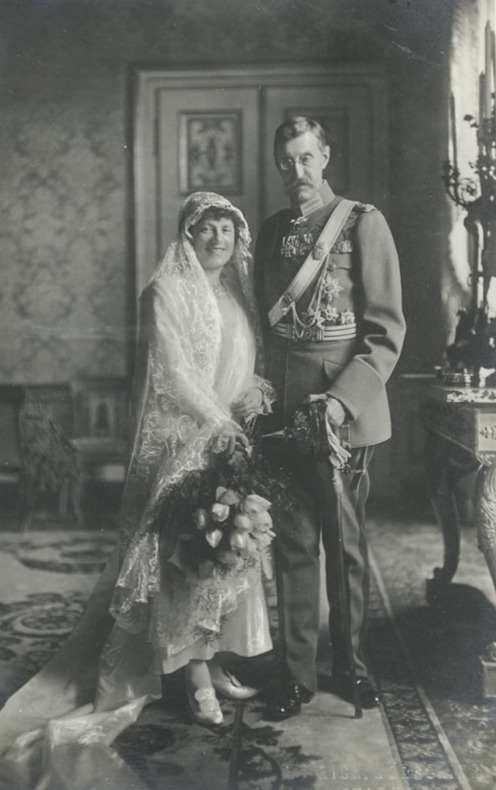
The bride was the sixth daughter of King Ludwig III of Bavaria and his wife, Archduchess Maria Theresa of Austria-Este.
The bridal couple with Princess Wiltrud's niece and nephew, Countess Maria Theresia and Count Johann Kaspar von Preysing-Lichtenegg-Moos.
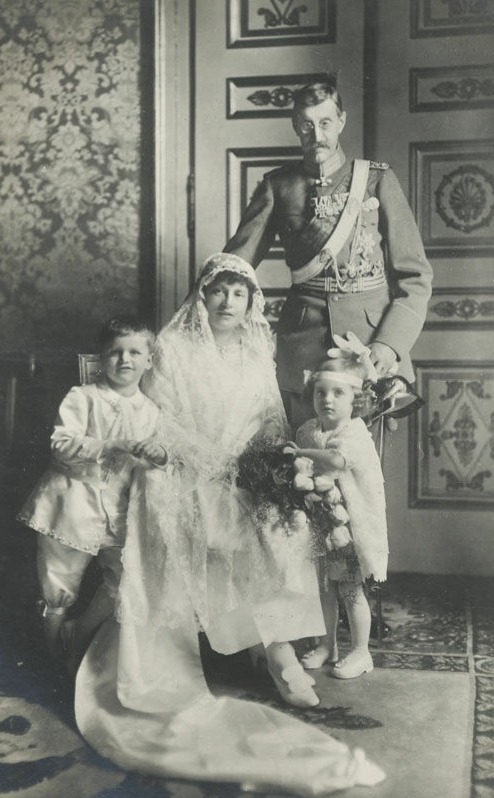
The wedding guests

Back row: Prince Eberhard of Urach, Prince Wilhelm of Urach, Prince Karl Aloys of Liechtenstein, Prince Karl Gero of Urach and Prince Albrecht of Urach.
Front row: Princess Margarete of Urach, Princess Karl Aloys of Liechtenstein, Princess Wiltrud of Bavaria, Wilhelm Karl, Duke of Urach, Princess Karola of Urach and Princess Mechthilde of Urach.
#princess wiltrud of bavaria#wilhelm karl duke of urach#princess margarete of urach#princess elisabeth of urach#princess karl aloys of liechtenstein#prince karl aloys of liechtenstein#prince eberhard of urach#princess karola of urach#princess mechthilde of urach#prince wilhelm of urach#karl gero duke of urach#Count Johann Kaspar von Preysing-Lichtenegg-Moos#countess maria theresia von Preysing-Lichtenegg-Moos#royal weddings#1924#1920s#urach#german royalty#german royal#prince albrecht of urach
12 notes
·
View notes
Photo

Maria Elisabeth of Bavaria, Princess of Wagram and Neuchâtel (5 May 1784 - 1 June 1849)
#maria elisabeth of bavaria#maria elisabeth amalie franziska#princess of wagram#princess of neuchâtel#daughter of duke wilhelm in bavaria#wife of louis-alexander berthier#history#women in history#18th century#19th century#art
6 notes
·
View notes
Text
For #ManuscriptMonday:

Gallican Psalter with Canticles, Augsburg, Germany, c.1520, f.115v, border decoration: medallion w/ King David brought before Saul; panel w/ donkey, stag, lion, bear, ram, rodents, lizard (or salamander?)...and a BIG snail:

look at its face 😂

More info on the manuscript:
"This luxury Psalter appears to have been created for Duke Wilhelm IV of Bavaria (1493-1550), as suggested by the depiction of the arms of Bavaria on folio 32r. It contains the major Psalm groupings at Psalms 1, 26, 38, 52, 68, 80, 97, and 109, but also contains additional subdivisions for Sunday Vespers, and for Ferial Vespers. The Psalter is accompanied by the Canticles, Litany, and Collect (fols. 130r-146r). Appended in a slightly later hand are Musical notation for the Kyrie and other prayers, dated 1540 (fols. 146v-152v). Illuminated roundels depicting episodes from the life of King David mark the beginning of each Psalm division. These scenes and the associated illuminated borders, which contain numerous depictions of animals, have been attributed to the Swiss illuminator Nikolaus Bertschi."
Library Company of Philadelphia MS 4.
#Manuscript Monday#medieval manuscript#illuminated manuscript#medieval miniature#book illustration#psalter#Gallican Psalter with Canticles#German art#European art#medieval art#Christian art#Nikolaus Bertschi#Swiss art#Library Company of Philadelphia#snail#medieval snails#animals in art
9 notes
·
View notes
Text
Murat as grand duke of Berg
It’s probably not very polite towards Eugène to post something for his arch-rival Murat on Eugène’s birthday. But I had been looking for something about Murat’s time as grand-duke of Berg for what feels like an eternity for @joachimnapoleon , had been excited to find the text below, had not immediately translated and posted it, had forgotten about it, could not find it anymore, and now that I’ve come across it again I’ll post it, period.
(Plus, Eugène, you used to not celebrate your birthday anyway, and I would need to look up your sister’s letters to find out when your name day is. So there.)
There actually is quite a long and detailed accout of the grand-duchy that I came across, however, written in Cologne, 1877, six years after the Franco-Prussian war. The author didn’t have many nice things to say about Murat, let’s put it that way.
This brief passage however is taken from »Regenten und Volksgeschichte der Länder Cleve, Mark, Jülich, Berg und Ravensberg«, Volume 3, by Dr. J. F. Knapp. Published a lot earlier, in 1836, and in Krefeld, a city that had been under French rule for many years, before becoming Prussian (again) in 1814. And this author seems to look back with some nostalgia and to see the era and particularly Murat in a much more positive light:
By a proclamation of the Emperor Napoleon of 15 March, the two duchies of Cleve and Berg were granted in full sovereignty to Prince Joachim Murat and his natural lawful male heirs with hereditary succession in these lands, and at the same time the dignity of Grand Admiral of France was hereditarily conferred on the Prince and his descendants.
Actually, Murat had become Grand Admiral (and prince) in February 1804, afaik. But quite probably nobody in Berg had ever heard about it before.
The true meaning of these arrangements was expressed by the Prince-Archchancellor of the French Empire [...]
That would be Cambacérès, I presume.
[…] in the speech he gave in the Senate on 21 March: "Prince Murat has been entrusted with the guardianship of an important part of the Empire's borders. Could His Majesty entrust this to worthier hands?"
Awww.
On 20 March, the former governor of the Duchy of Berg, Duke Wilhelm von Baiern, left Düsseldorf with his family. This amiable prince, to whom the people of Berg were very devoted, took an affectionate farewell from the country by a decree dated 20 March 1806.
On a sidenote: This Duke Wilhelm is Berthier’s future father-in-law. The aforementioned family consisted of him, his wife (a sister to King Max Joseph of Bavaria), his daughter Elisabeth (future Madame Berthier) and his son Pius who, as an adult, by his violent conduct would manage to get himself into prison. In Bavaria. As a Wittelsbach. - Pius also is the paternal grandfather of future empress Elisabeth of Austria (Sissi).
While only a short time before, on 17 January, the elevation of Maximilian Joseph to the royal dignity on 1 January 1806 had been proclaimed in Düsseldorf and received with the sincere joy of loyal subjects and even celebrated with festivities, people now received with all the greater sadness the news that from now on the fate of the country was to be entrusted to an imposed foreigner instead of the established native prince.
I have a feeling that the last paragraph was necessary for the book to be allowed to be published in Prussian territory. Just to put things in perspective: The "established native prince" (Max Joseph of Bavaria) resided in Munich, had only inherited the duchy in 1799, had spent all his youth in France and, to my knowledge, had never even visited the region of Berg since he had become elector.
On to Joachim:
[...]
Joachim personally showed much inclination to win the trust of his subjects. He sought to alleviate their plight by importing a considerable amount of grain from the left bank of the Rhine. Even during his imminent departure, he did not forget his new duties. A deputation of merchants from the two duchies, which he had summoned to Paris, had to present their wishes and opinions to him in order to further improve trade and factories. Even when he was in Poland, he obtained favourable trade concessions for the Elberfelders from the Emperor in Warsaw. On 26 January 1807, he issued a detailed decree from Warsaw on the pension status of civil servants, their widows and children. After thirty years of service, every civil servant was to have the right to demand retirement; also, all pension payments were now firmly secured and accurately determined according to the ratio of salaries. He never denied his attitude of admitting in any case that his subjects should be regarded as French subjects, and often, in opposition to the Emperor's will, he openly expressed it and sought to assert it. Without scientific education, he nevertheless had proper tact, which replaced many a theoretical knowledge. He abhorred injustice, cunning and intrigues against everyone in his characteristic military straightforwardness. It is true that his minister Agar was a Frenchman, but he had not entrusted him with this important post for that reason, but because he held him in high esteem personally. On the contrary, he was averse to Frenchmen filling the posts of civil servants, however much he was approached by them. To several French military officers whom he employed in the contingent in 1807, he explicitly made it a duty to honour his choice and to never forget that they were now no longer in French but in German service, with a prince who was a member of the Confederation of the Rhine. Flattery was repugnant to him, and he was often heard to say in the course of the audiences he gave: People are not sincere, and seek to achieve their ends by fine phrases, because they think him weak enough to lend his ear to flattery. "For," he said, "it is impossible that I should be loved in this country, since I have not yet done anything for it; but they will love me, I assure you!"
I can’t help but think that some of this was written intentionally as a slight to the Prussians who ruled the region at the time, and who were very much disliked all throughout the country. "Remember when we had that ‘eeevil’ Frenchman here? Man, those were the days..."
27 notes
·
View notes
Photo



“The statuette was made to house a relic of St George that Archbishop Ernst of Cologne sent in 1586 to his brother Duke Wilhelm V of Bavaria. In the seventeenth century, the statuette was displayed on important feast days on the altar of the Rich Chapel in the Munich Residence. The bearded face of the saint behind the movable visor is carved from boxwood and resembles that of the man who commissioned the statuette, Duke Wilhelm V.”
63 notes
·
View notes
Photo

🐚Under renaissance spell - 📌The Grottenhof of the Residenz of Munich. Ordered between 1581 and 1589 by the duke of Bavaria Wilhelm V, this construction was made with marine shells. The purpose? enjoy fresh atmosphere in summer days. @schloesserverwaltung.bayern (en Royal Residenz Munich) https://www.instagram.com/p/ClmOlA1g2_X/?igshid=NGJjMDIxMWI=
16 notes
·
View notes